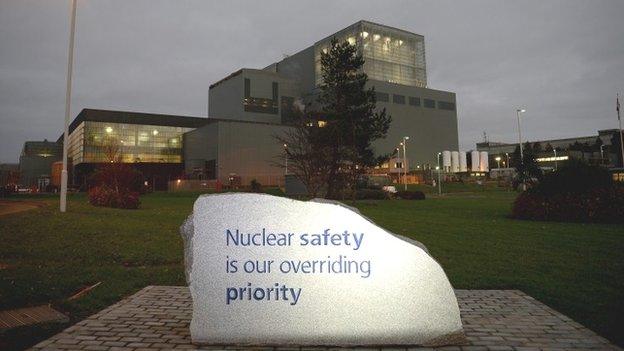Overhaul begins at Hunterston nuclear power station
- Published
Hunterston B nuclear power station is receiving a multi-million pound overhaul following the decision to extend its working life
Work has begun on a major overhaul of the nuclear power station at Hunterston in Ayrshire.
It follows the decision to extend the station's working life by a further seven years.
Hunterston B opened in 1976 and was originally scheduled to be decommissioned in 2011, but will now generate electricity until 2023.
EDF Energy says it is investing more than £20m to ensure it continues to operate efficiently and safely.
Station director Colin Weir told BBC Scotland: "As the plant ages, we have to look at what's ageing and replace some components.
"More importantly, we also test and inspect our components, much as you would with a vintage car.
"We take a great deal of care with our nuclear power plant."
The work is known as a "statutory outage".
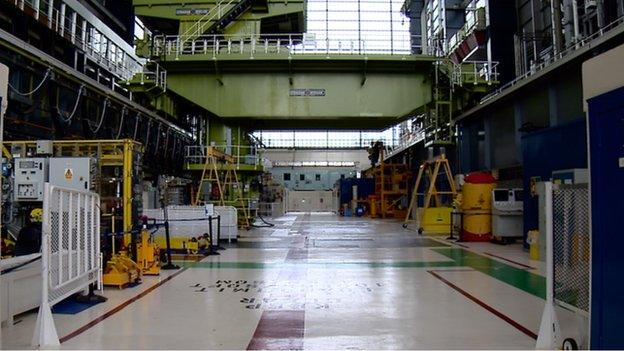
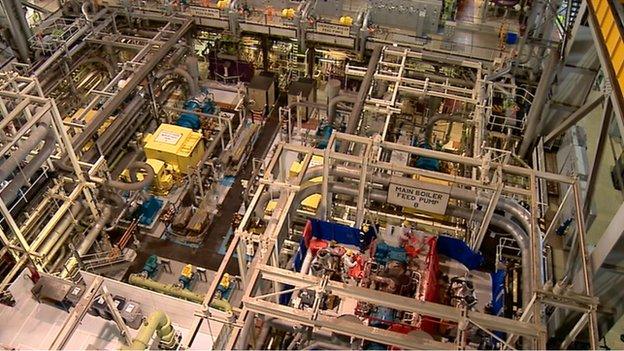
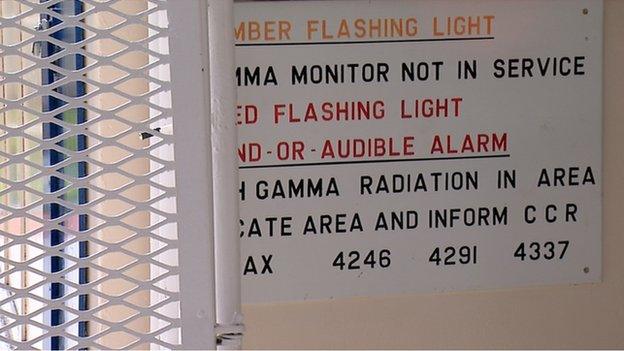
The operators of nuclear power plants are required by law to carry out regular inspections and maintenance.
Major work can only be carried out when part of the plant is shut down.
One of Hunterston B's two Advanced Gas Cooled Reactors (AGRs) is currently offline as a result and won't return to service until October.
The workforce at Hunterston, near West Kilbride, has doubled as a result of the project and firms across the west of Scotland have won new business.
Local bed and breakfast owners in Ayrshire are benefiting from the influx of workers and, at the other end of the economic scale, major engineering companies are benefiting too.
Doosan Babcock in Renfrew is one of those firms.
The company's nuclear service director, Cameron Gilmour, said: "We support EDF at Hunterston and Torness in Scotland, but also across its other nuclear stations in the UK.
"We employ up to 1,000 people with EDF and in Scotland our nuclear business is very important to sustaining jobs locally and investing in facilities like those we have here in Renfrew."
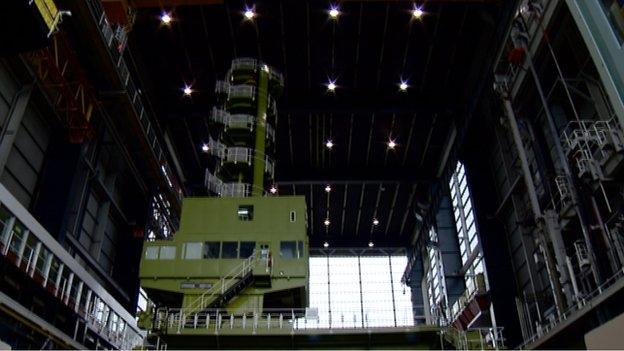
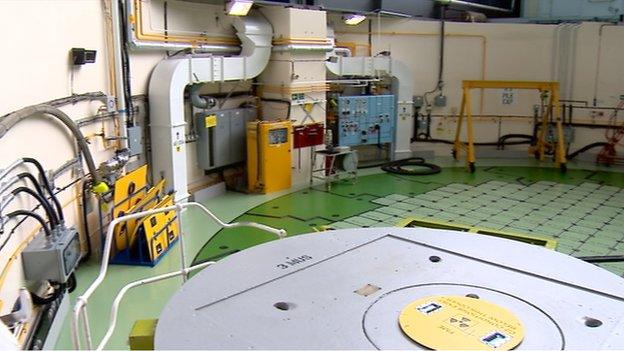
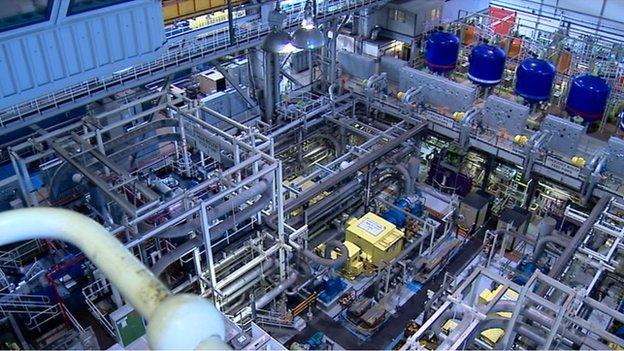
But anti-nuclear campaigners say the money being invested at Hunterston could be better spent elsewhere.
Dr Richard Dixon, of Friends of the Earth Scotland, said: "You could create many more jobs if you were investing in energy efficiency, insulating people's homes, and in particular in renewables.
"You would get more jobs for the same amount of money and you wouldn't be creating more nuclear waste, for which we have no solution."
The nuclear plant at Torness in East Lothian began operating in 1988 and is due to be decommissioned in 2023.
Its working life is also expected to be extended, subject to approval by the UK's Office for Nuclear Regulation.
The Scottish government is opposed to the construction of new nuclear power stations in Scotland, but the UK government says new stations will have an important role to play in the country's future energy mix.
- Published19 February 2014
